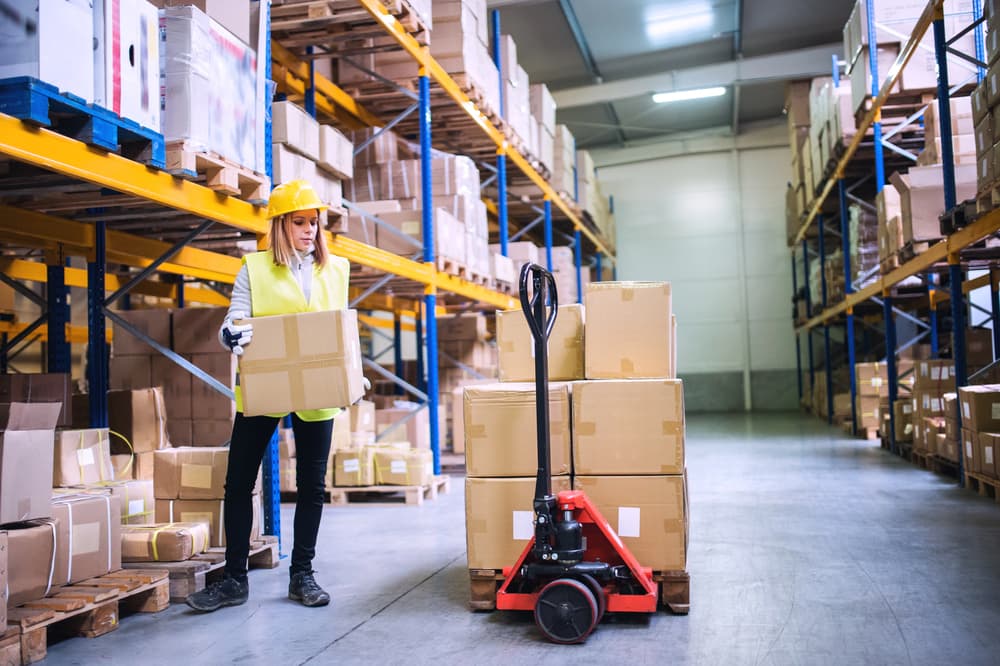In Australian warehouse contracts, watch for hidden costs associated with ancillary services, inventory management, shipping, and technology. These charges often appear as variable fees on top of the base storage rate.
Warehouse agreements can be tricky because what looks like a simple per-pallet or per-order fee often hides extra charges buried in the fine print. Beyond the standard warehousing costs for receiving, storage, and picking, there are plenty of overlooked expenses that can erode your margins.
Knowing these charges upfront helps you negotiate smarter and protect your margins. Read on to learn what to look for.
1. Ancillary Service Fees
Ancillary service fees cover the “extras” that don’t always appear in your base warehouse rate, but they can add up fast.
Companies often bill these services separately or hide them in the fine print to keep your operations running smoothly. Knowing what to expect helps you plan your budget and avoid surprises.
Common ancillary fees include:
- Receiving fees: Warehouses may charge per container, pallet, or item to receive and process inbound stock. Costs rise if your goods need more sorting, inspection, or manual handling.
- Special handling: Expect higher fees for fragile, hazardous, or temperature-sensitive products that need extra care or special storage conditions.
- Kitting and custom packaging: Value-added tasks, such as assembling product bundles, promotional packs, or custom-branded boxes, usually incur additional charges.
- Returns (reverse logistics): Handling returned items involves inspecting, repackaging, or disposing of them. All of which can drive up costs if not managed efficiently.
- Setup fees: Some warehouses charge an initial setup fee to onboard your account, configure systems, or register your inventory in their software.

2. Inventory and Storage Costs
Warehouse contracts can also include sneaky costs tied to how you manage your stock. These can add up quickly if you’re not keeping a close eye on turnover, space use, and accuracy. Understanding these terms helps you avoid paying more than expected and keeps your inventory working efficiently for your business.
Here are some common hidden storage-related fees to watch for:
- Long-term storage fees: Extra charges for stock that sits too long, often beyond six months.
- SKU velocity fees: Penalties for slow-moving products that tie up valuable warehouse space.
- Shrinkage: Make sure your contract clearly outlines who’s liable for lost, stolen, or damaged inventory.
- Peak season charges: Premium rates often apply during busy times like Christmas.
- Minimums and penalties: Fees for not meeting minimum storage or order volumes.
- Accessorial or extra handling fees: Extra costs for pallets that aren’t up to standard or for manually unloading containers.
- Obsolete or damaged stock: Expect disposal fees for expired or unsellable goods.
- Specialised storage: Extra fees for climate control, hazardous materials, or added security.
- Inventory discrepancies: Charges for mismatches between physical and recorded stock levels.
3. Shipping and Freight Charges
Shipping rates aren’t always as clear-cut as they seem. What looks like a simple per-shipment or per-kilogram rate can quickly balloon once extra fees and fine print come into play.
Understanding how providers calculate these costs helps you keep freight expenses under control and avoid budget blowouts.
Some key things to watch for include:
- Dimensional weight: Carriers price shipments based on both size and weight. Large but lightweight boxes can cost more if you don’t factor in dimensional weight.
- Surcharges: Expect extra fees for international deliveries, oversized or heavy items, fuel, or residential drop-offs.
- Detention and demurrage: These charges apply when containers are not loaded, unloaded, or collected within the allowed time frame.
- Carrier negotiation: Some 3PLs use their own carrier deals, while others let you use your rates. Check how shipping charges are handled to make sure you’re getting the best value.

4. Technology and Integration Fees
When your warehouse provider’s systems don’t connect smoothly with yours, it can lead to delays, errors, and unexpected costs. Your warehouse management system (WMS) needs to integrate properly with your 3PL’s software to keep orders, stock, and data flowing efficiently.
However, some providers charge extra for this. These charges may be small, but they can add up. So, make sure your contract clearly outlines all tech-related costs and watch out for:
- Integration fees: While some warehouses include tech setup and support in their base rate, others bill a one-time or ongoing fee to connect your systems. This might cover linking your eCommerce platform, ERP, or inventory tools.
- Account management fees: Some contracts include a regular fee for administrative tasks like reporting, system updates, or maintaining your account.
5. Other Contract-Specific Costs
Every warehouse contract has its own fine print, and that’s often where extra costs hide. These charges can vary depending on your provider, contract length, and how your operations are set up. Taking the time to understand them helps you avoid budget shocks later.
Here are a few things to look out for:
- Contract termination: Ending a contract before its expiry can lead to heavy exit fees. Read the fine print carefully.
- Transition costs: Make sure costs for moving your stock out of the warehouse are clearly defined in the agreement.
How to Protect Yourself from Hidden Costs in Warehouse Contracts
Avoiding hidden warehouse costs starts with being proactive and detail-focused. The key is to understand every part of your agreement, from pricing structures to service conditions, before signing anything. A bit of extra homework now can save you thousands later.
To protect your bottom line:
- Read the contract carefully: Go through every line item, even the fine print.
- Model your business: Share data like product size and sales forecasts for accurate quotes.
- Request a full fee schedule: Ask for all accessorial, ancillary, and variable fees in writing.
- Clarify minimums: Confirm the minimums for storage, labour, and order volumes.
- Outline special requirements: Be upfront about handling, compliance, or storage needs.
- Understand WMS integration: Check compatibility and related costs, or use your system.
- Question everything: Ask for explanations of unclear charges.
- Monitor inventory: Keep track to avoid excess stock or long-term storage fees.
- Audit invoices: Regularly check billed items against your contract.
- Get expert help: A supply chain consultant can flag hidden risks before you commit.

Protect Your Profits from Hidden Warehouse Fees
Hidden costs in warehouse contracts can pile up fast, eating into your profits before you even notice. Good thing you can stay in control by being proactive. Read every clause, ask detailed questions, and don’t skip the fine print. Before you sign, ask your 3PL or warehouse provider for a full breakdown of all fees. It will save you thousands.
If you want reliable, transparent warehouse services that fit your business needs, contact Effective Logistics on 03 8376 3300 or visit our contact page to chat with our friendly team today.

